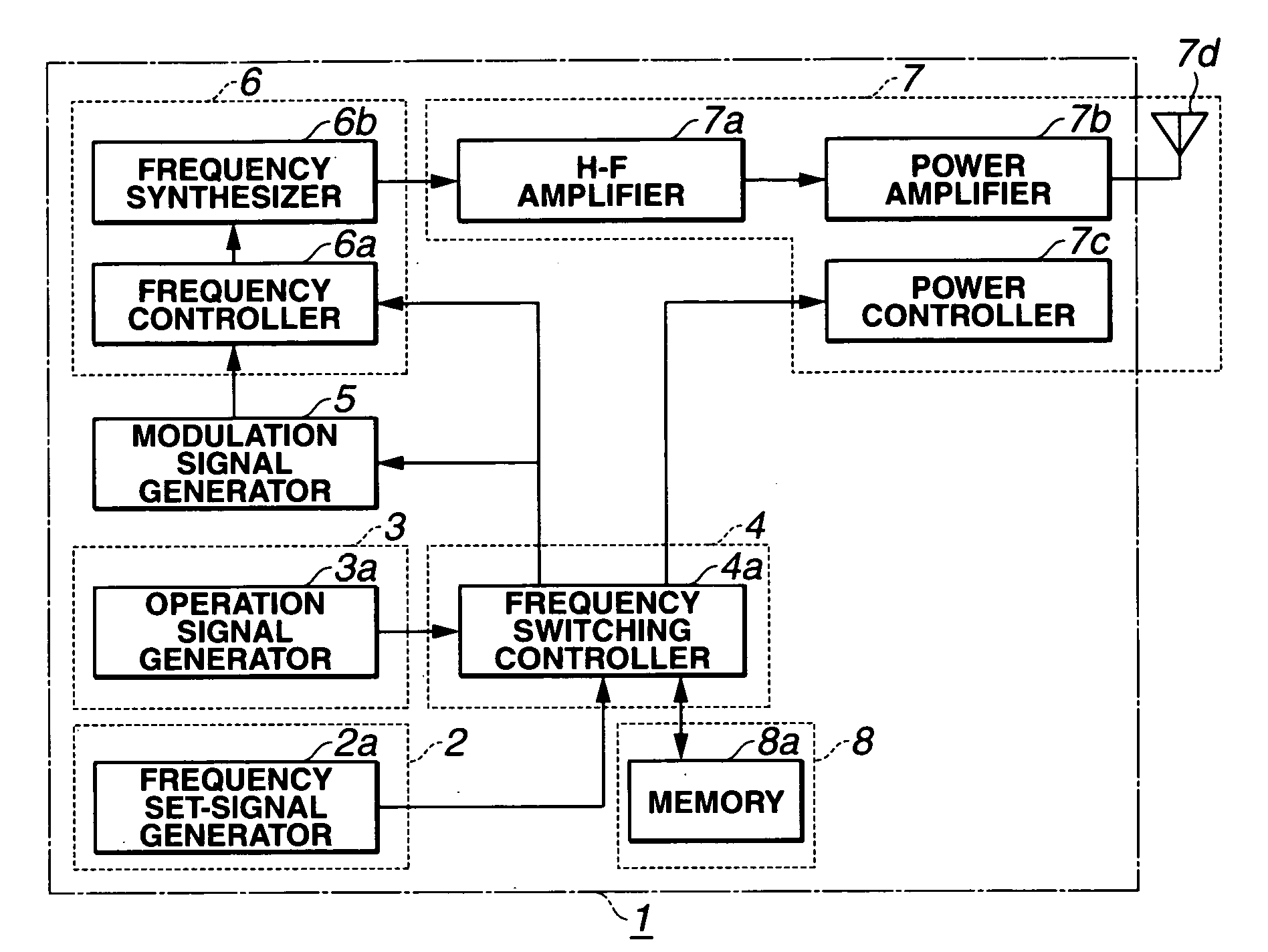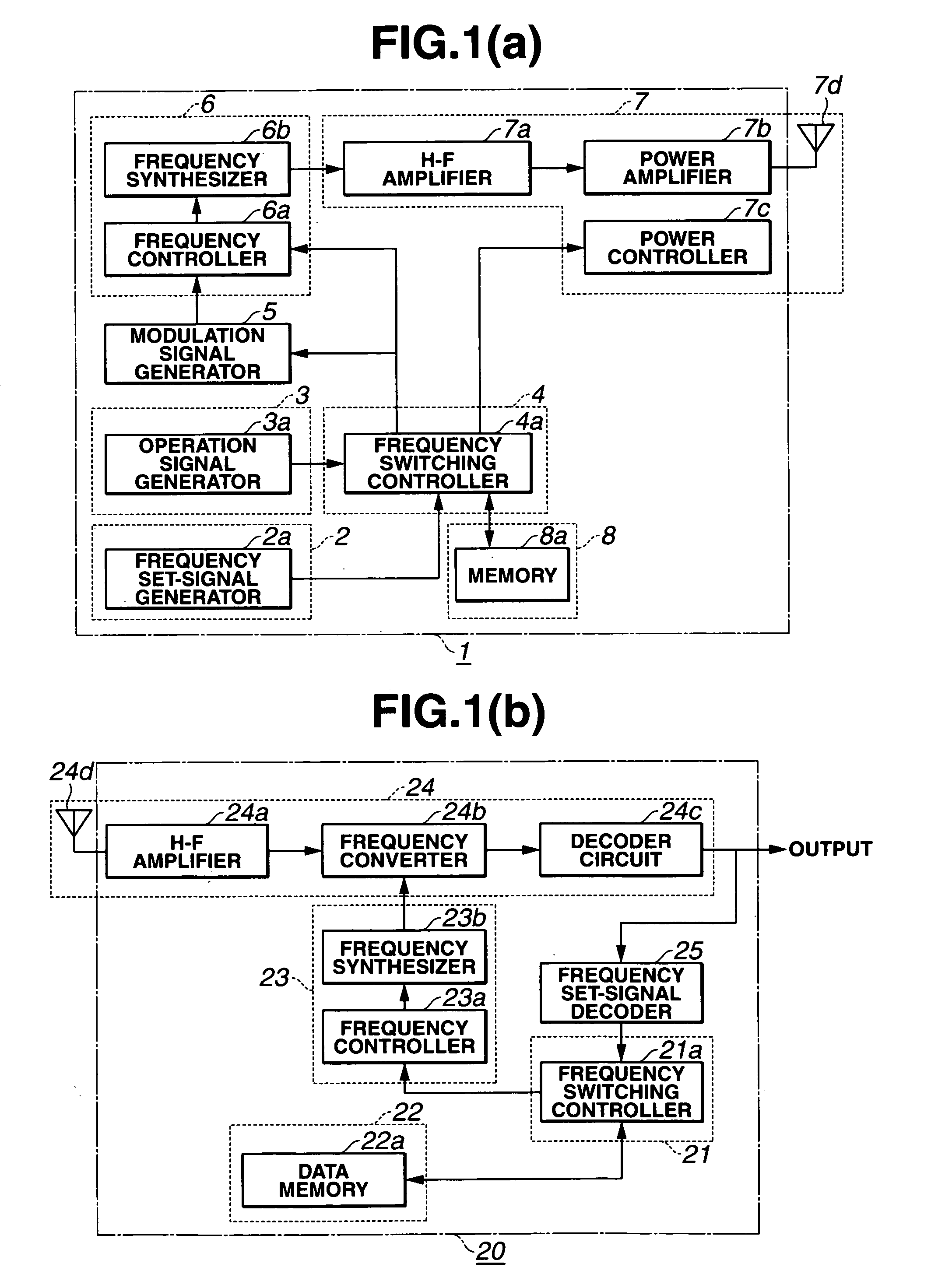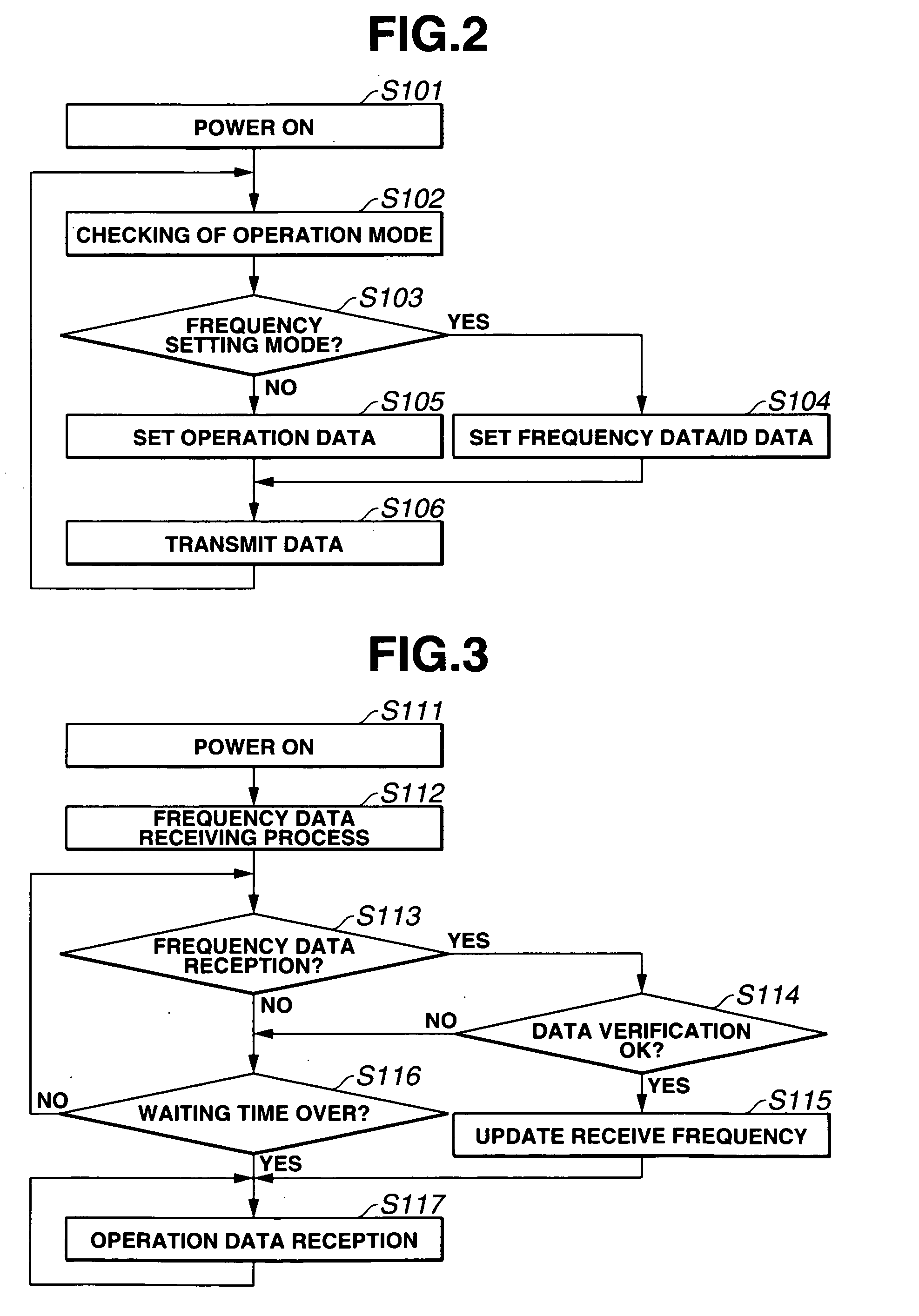Radio control system for models
a control system and model technology, applied in the direction of model railways, toys, transmission monitoring, etc., can solve the problems of inability to control the radio-controlled model, the configuration has a disadvantage in the frequency changing work, and the inability to use frequencies other than designated frequencies, so as to eliminate the frequency switching work and time loss
- Summary
- Abstract
- Description
- Claims
- Application Information
AI Technical Summary
Benefits of technology
Problems solved by technology
Method used
Image
Examples
Embodiment Construction
[0033] A radio control system according to an embodiment of the present invention will be explained by referring to the attached drawings.
[0034]FIG. 1 is a block diagram illustrating a radio control system according to an embodiment of the present invention. FIG. 1(a) is a block diagram illustrating a transmitter and FIG. 1(b) is a block diagram illustrating a receiver.
[0035] The transmitter and the receiver are explained below respectively.
[0036] Transmitter:
[0037] In the embodiment of FIG. 1(a), the transmitter 1 includes frequency set signal generator means 2, operation signal generator means 3, frequency switching controller means 4, transmission frequency setting means 6, signal transmitter means 7, memory means 8, and modulation signal generator 5.
[0038] As shown in FIG. 1(a), the frequency set signal generator means 2 includes a frequency set signal generator 2a. The operation signal generator means 3 includes an operation signal generator 3a. The frequency switching con...
PUM
 Login to View More
Login to View More Abstract
Description
Claims
Application Information
 Login to View More
Login to View More - R&D
- Intellectual Property
- Life Sciences
- Materials
- Tech Scout
- Unparalleled Data Quality
- Higher Quality Content
- 60% Fewer Hallucinations
Browse by: Latest US Patents, China's latest patents, Technical Efficacy Thesaurus, Application Domain, Technology Topic, Popular Technical Reports.
© 2025 PatSnap. All rights reserved.Legal|Privacy policy|Modern Slavery Act Transparency Statement|Sitemap|About US| Contact US: help@patsnap.com



